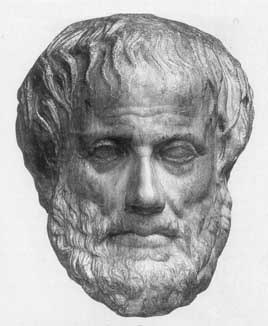Become Master of Metaphors
Become Master of Metaphors

The greatest thing by far is to be a master of metaphor. It is the one thing that cannot be learned from others; it is also a sign of genius, since a good metaphor implies an eye for resemblance. - Aristotle
Entrepreneurs are told time and time again to tell a story. Why though? This is because a good story keeps people entertained, engaged, and most of all… people remember them. How can you tell good stories? By becoming a master of metaphors.
According to Aristotle, you may not be a genius and you can’t learn how to be a master of metaphor. But, this is BS. You may not ever be the Michael Jordan of metaphors, but you definitely don’t have to be the kid who always gets picked last to be on the team. All it takes is practice. See what I just did there?
Let us deconstruct what makes a metaphor. According to Tammie Bob of the College of DuPage:
At its most basic, metaphor is a rhetorical trope or a figure of speech, where a comparison is made between two seemingly unrelated objects without using “like” or “as”. It is a transference of one object’s characteristics onto another. However, it is not to be confused with simile, metonymy, personification, allusion, and antonomasia.
A metaphor consists of two main parts: the tenor and the vehicle. The tenor is the subject to which the metaphor is applied. The vehicle is the metaphorical term through which the tenor is applied. These two parts come together to reach a point of similarity known as a ground.
For Example: Life is a yo-yo. It’s a series of ups and downs.Here, life is the tenor and yo-yo is the vehicle. The fact that both life and a yo-yo have ups and downs is the ground.
Now that we know what composes a metaphor, Brian Clark of Copyblogger writes why metaphors are so powerful:
Metaphors are so powerful because of one simple fact of human psychology—we react more readily to the emotional than the rational. Thanks to the differences between the two hemispheres of our brains, what catches our attention and sticks with us is what we see and feel via our right brain. After that, the rational left hemisphere can be engaged by the relational nature of the metaphorical information itself.
Think about it. Think about all of the passages, poems, and fictional narratives that you’ve read in your life. What makes them so memorable and powerful? I would argue metaphors.
So how can you become better at developing metaphors? I don’t have a fucking clue. In the meantime, I’m increasing my reading of fiction in hopes that the imagery from metaphors sticks.
How do you think you can get better at delivering metaphors?
You might also enjoy:
- Give Your Customers a Story to Tell
- Prison, and Taking Things for Granted
- Bona Fide Everyday Stories
Follow me on Twitter: @jprichardson
-JP
If you made it this far, you should follow me on Twitter. Follow @jprichardson
-JP